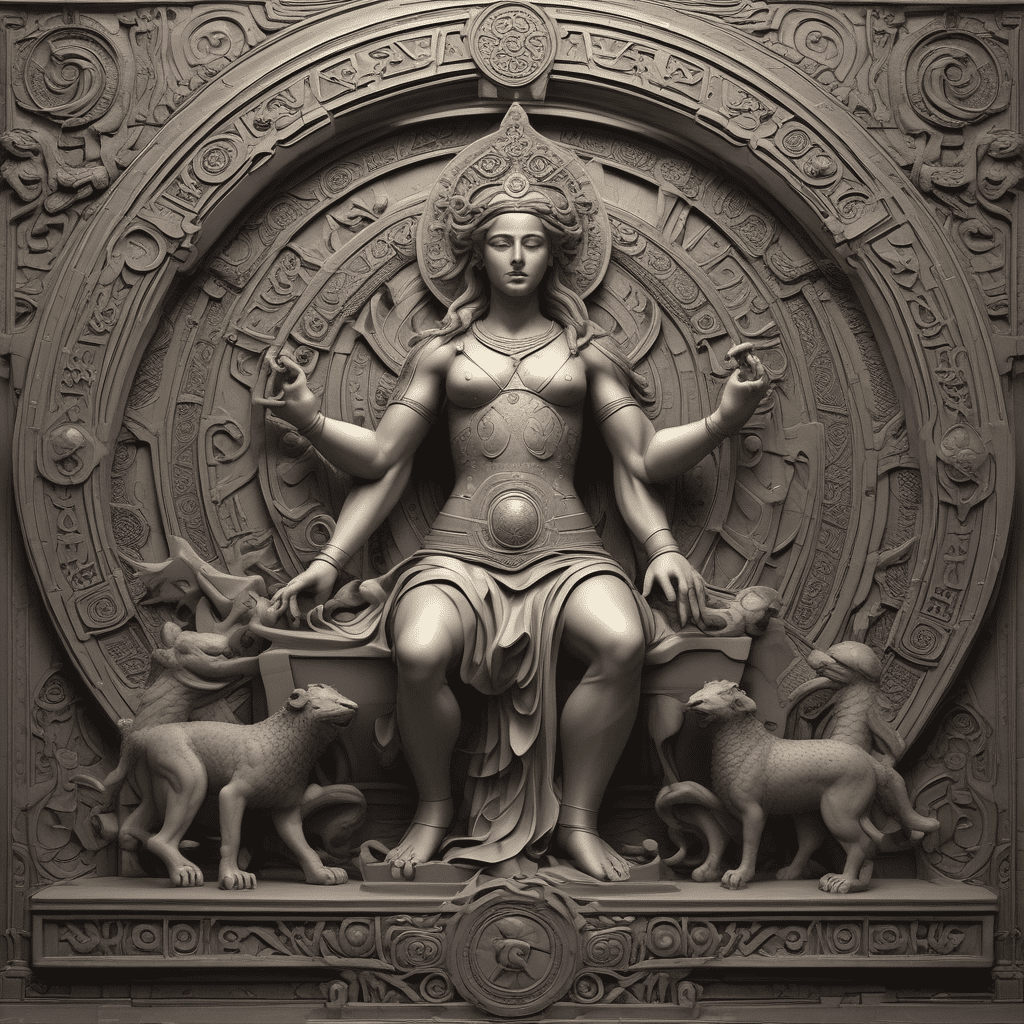The Paradox of Morality: Myths That Challenge Conventional Wisdom
I. Introduction
Morality, in its broadest sense, refers to the principles concerning the distinction between right and wrong or good and bad behavior. It serves as a fundamental pillar in society, guiding individuals and communities in their interactions and decisions. The significance of morality is profound, as it establishes a framework for social order, justice, and human well-being.
Commonly, morality is understood through various lenses, including religious, philosophical, and cultural perspectives. Most people tend to believe in a set of moral standards that dictate acceptable behavior. However, moral philosophy often reveals a more complex landscape filled with paradoxes and contradictions.
This article aims to explore the myths surrounding morality that challenge conventional wisdom, shedding light on the intricate nature of moral beliefs and the cultural narratives that shape them.
II. The Nature of Moral Myths
Moral myths are narratives or beliefs that are widely accepted within a culture but may not hold true universally. They often arise from historical contexts and social norms that evolve over time. Understanding moral myths requires examining their origins and the roles they play in shaping societal values.
Historically, moral myths have been prevalent in various cultures, often encapsulated in folklore and storytelling. These stories not only entertain but also educate individuals about moral principles, serving as a means to transmit values across generations.
- Example of moral myths: The tale of Robin Hood teaches the value of justice and charity.
- Folklore’s role: Many cultures have folklore that reflects their moral beliefs and societal norms.
III. Myth 1: The Universality of Moral Values
One prevalent belief is that certain moral values are universal across all cultures. This myth suggests that concepts like justice, honesty, and respect are inherently understood and accepted by all human societies. However, this notion is challenged by cultural relativism, which posits that moral values are shaped by cultural contexts.
Case studies illustrating cultural relativism reveal significant differences in moral frameworks:
- Honor cultures: In some societies, honor and revenge are critical moral values, leading to different conflict resolution methods.
- Collectivist vs. Individualist societies: The emphasis on community versus individual rights varies widely across cultures.
The implications of this myth are profound, particularly in global ethics and conflict resolution, as differing moral beliefs can lead to misunderstandings and tensions between cultures.
IV. Myth 2: Morality is Innate
The belief that humans are born with an inherent sense of right and wrong is another pervasive myth. This perspective suggests that morality is a natural instinct, deeply embedded in our biology. However, psychological and biological research provides a more nuanced view.
Studies in developmental psychology show that moral development in children is highly variable and influenced by environmental factors:
- Research findings: Children learn moral values through socialization, observation, and cultural practices.
- Variability: Different parenting styles and cultural contexts result in diverse moral understandings among children.
V. Myth 3: Moral Actions Lead to Happiness
Another common belief is the correlation between morality and happiness. This myth suggests that engaging in moral actions results in personal happiness and fulfillment. However, the reality is more complex, as moral dilemmas often involve self-sacrifice and difficult choices.
Counterexamples illustrate this complexity:
- Self-sacrifice: Individuals may choose to act morally, even at a personal cost, such as whistleblowers facing severe repercussions.
- Moral dilemmas: Situations where moral choices lead to distress, such as the trolley problem.
Philosophical perspectives, such as utilitarianism and deontological ethics, further complicate the relationship between morality and happiness, suggesting that moral actions do not always align with personal well-being.
VI. Myth 4: Moral Absolutism vs. Moral Relativism
The debate between moral absolutism and moral relativism is central to ethical discussions. Moral absolutism holds that certain moral principles are universally applicable, regardless of context, while moral relativism argues that morality is contingent on cultural or situational factors.
Arguments for both positions include:
- For absolutism: Some argue that universal human rights exemplify moral truths that transcend cultures.
- For relativism: Others contend that imposing one culture’s morals on another can lead to oppression and misunderstanding.
The real-world implications of these frameworks are significant, impacting policy-making, legal systems, and international relations.
VII. Myth 5: Rationality as the Basis of Moral Judgment
Many believe that moral judgments are primarily based on rational thought and logical reasoning. However, emerging research in neuroscience and psychology indicates that emotions and intuition play a critical role in moral decision-making.
Insights from studies show that:
- Emotional influence: People often rely on gut feelings and emotional responses to navigate moral dilemmas.
- Intuition: Intuitive judgments can sometimes lead to moral conclusions faster than rational deliberation.
VIII. The Role of Culture in Shaping Moral Beliefs
Culture profoundly influences perceptions of morality, with distinct moral beliefs emerging across different societies. Comparative analyses reveal that what is considered moral in one culture may not hold the same weight in another.
Globalization further complicates this landscape, as cultural exchanges challenge traditional moral frameworks and introduce new ethical considerations.
IX. The Future of Morality: Navigating Moral Complexity
As societies continue to evolve, the need for a nuanced understanding of morality becomes increasingly important. Navigating moral complexity requires recognizing the diverse influences on moral beliefs and being open to dialogue across cultural boundaries.
In conclusion, the paradox of morality reveals that our understanding of right and wrong is far from straightforward. By challenging conventional wisdom and exploring the myths that surround morality, we can foster a more inclusive and thoughtful discourse on ethics in our increasingly interconnected world.




